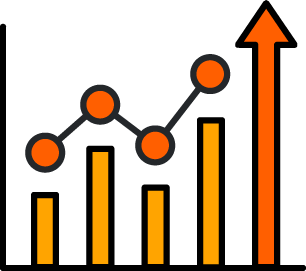How We Work
Turning vision into action
Good intentions alone don’t change systems.
Without trust, alignment, and community leadership, they can cause more harm than progress. Pyxera Global helps partners take action that is practical, grounded, and lasting. We do this by:
Seeing the whole picture → Connecting the dots across complex systems so partners can act with clarity.
Translating goals → Aligning business priorities with what matters most to communities.
Building trust → Doing the relationship work that makes change durable.
Our Approach
Lasting change starts with how resources, power, and knowledge flow.

Align resources with local priorities
Funding, infrastructure, and decisions—to match what communities actually need

Shift conditions for participation
Moving decision-making closer to the ground with local leadership at the center

Elevate knowledge that’s too often overlooked
Honoring lived, ancestral, and place-based wisdom too often ignored in top-down systems
In Practice
This approach comes to life in many ways—whether through skills-based volunteering programs, circular supply chain design, regenerative agriculture partnerships, or coalitions for systemic change. Each is a different entry point, but the goal is the same: lasting results that remain after projects end.
Engaging employees in meaningful projects that strengthen nonprofits, build leadership capacity, and test community-centric solutions — from digital transformation to sustainability.
Example: SAP → We’ve engaged thousands of employees worldwide over the last 10+ years in pro bono projects that strengthened nonprofit capacity and advanced digital transformation.
Partnering with companies and coalitions to secure supply chains, reclaim and reuse materials with commoditized value, reduce waste, and ensure local enterprises benefit from new market opportunities.
Example: FedEx → Co-founded the Circular Supply Chain Coalition, bringing together companies, innovators, and communities to reclaim critical materials and design reuse systems.
Supporting community-led approaches that improve food security, restore ecosystems, and create stable livelihoods for farming families.
Example: John Deere Foundation → Partnered on the Rayuwa project in Nigeria, supporting farming families with regenerative practices that improve yields, strengthen education, and build long-term resilience.
Convening diverse partners — businesses, governments, funders, and communities — to tackle complex challenges like climate resilience, equity, and digital justice.
- Circular Supply Chain Coalition (CSCC) → Partnering with corporations, consultants, and others to design circular models that reclaim critical minerals and reduce dependency on fragile supply chains.
- Circular City Coalition (CCC) → Bringing city governments, funders, and communities together to reimagine urban systems around equity, reuse, and regeneration.
- Partnership for Digital Justice (P4DJ) → Building a cross-sector alliance to ensure emerging technologies are governed with equity, accountability, and community voice at the center.
The systems that shape daily life are overdue for transformation. Let’s reimagine what’s possible—and put the partnerships in place to make it real. Lasting results come when systems shift, not when projects end.
The Pyxera Global Theory of Change
Our Theory of Change informs how tri-sector partnerships and deep organizational involvement can change the world. This premise is core to everything we do, and we’re working on how to share it with you.
Be the first to learn more about the Theory of Change. Subscribe to our newsletter.
"*" indicates required fields
Let's work together!
We’re seeking new partners to fund, advise, and advance our efforts toward a world where equitable, regenerative systems enable all communities to thrive.
The Pyxera Global Theory of Change
Our Theory of Change informs how tri-sector partnerships and deep organizational involvement can change the world. This premise is core to everything we do, and we’re working on how to share it with you.
Be the first to learn more about the Theory of Change. Subscribe to our newsletter.
"*" indicates required fields
